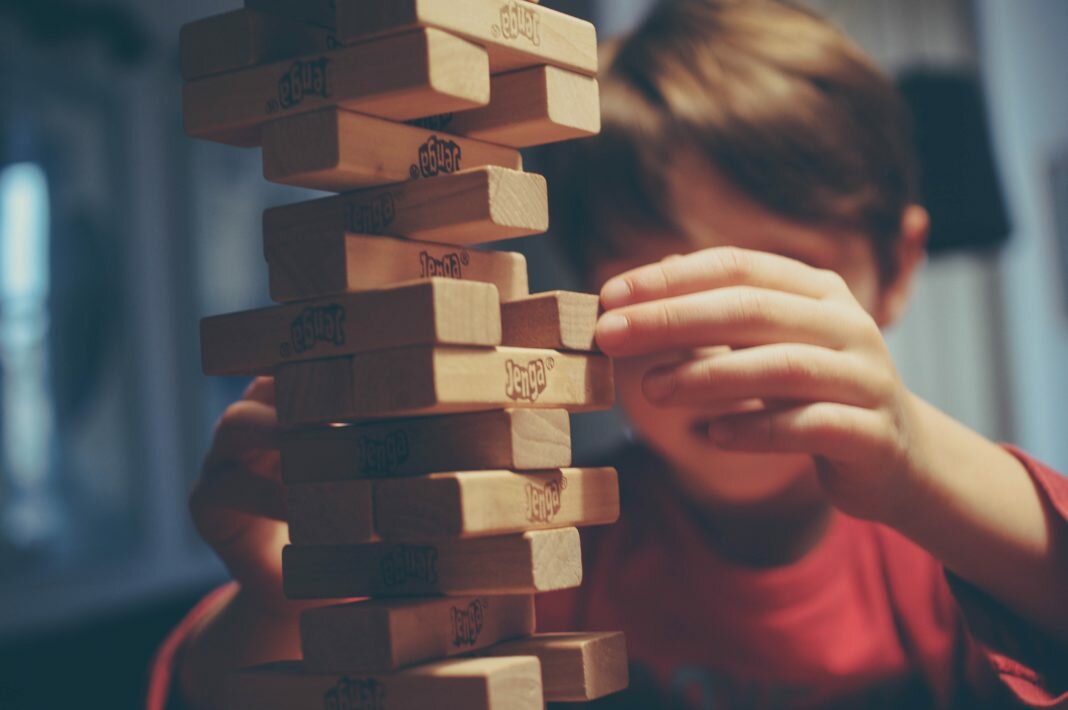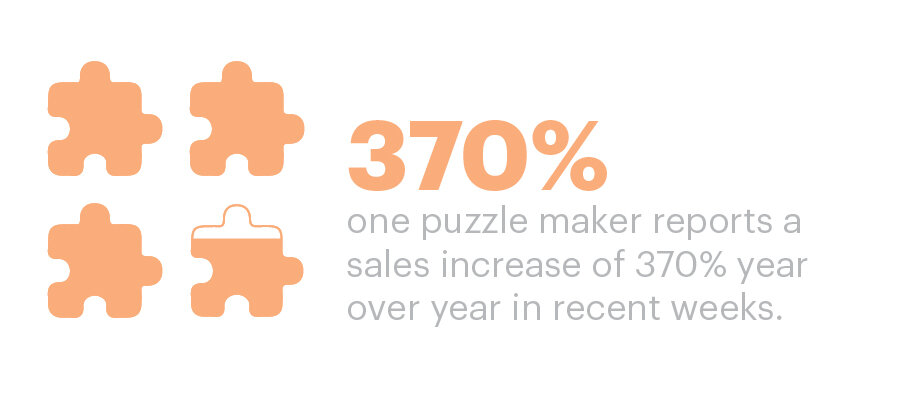Brief • 3 min Read

Puzzles and games have been one of the retail bright spots of the pandemic; one puzzle maker reports a sales increase of 370% year over year in recent weeks. These sales numbers aren’t entirely surprising for anyone who has scrolled through Instagram lately and seen a puzzle in progress. 36% of Americans indicate they are doing more puzzles and games now than they were a month ago, and this is one of the most relaxing behaviors in the research, helping to reduce anxiety among 1-in-5.

Being confined to home provides many with more time to spend with online gaming as well – either playing themselves or watching others play. In fact, the New York Times recently noted that pro-gamers on platforms like Twitch might be in the most virus-proof job in the world – they are used to playing in isolation and have a huge potential audience at home ready to watch them play. So, what is the impact of gaming and watching pro-gamers? The research indicates similar levels of increased relaxation and decreased anxiety for both online and offline gaming, but the online version comes with a few additional negatives. Online gaming is one of the behaviors most likely to result in difficulty sleeping and/or poor dietary habits. And despite the fact many games/platforms enable interaction between players (or viewers) online gaming is just as likely to make you more lonely as it is to make you less. There may be an opportunity for gaming companies to step up in the current environment. In addition to opportunities to increase connection via gaming, there is a chance to be engaged in COVID-19 relief in a more impactful way: these highly visible consumer tech companies registered in the recent Harris Poll Corporate Perception Monitor, as a group that American’s felt should be leaning in and doing more to help during this time – but are not.
Methodology
This survey was conducted online within the United States by The Harris Poll from March 6-8, 2020 among 2,000 U.S. adults ages 18 and older. This online survey is not based on a probability sample and therefore no estimate of theoretical sampling error can be calculated. For complete survey methodology, including weighting variables and subgroup sample sizes, please contact Amber.Broughton@harrisinsights.com.
Subscribe for more Insights
Subscribe to our newsletter for the latest trends in business, politics, culture, and more.
Related Content








